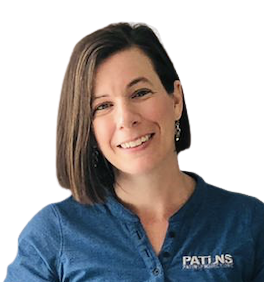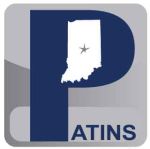- Home
- Services
- Support by Area of Need
- Transition
Transition
PATINS Specialist
 Amanda has 25+ years in education, working in Indiana, Madrid, Spain, and Mexico City, Mexico. Over the course of ten years in Mexico City, she gained Spanish linguistic skills and deeper cultural awareness. She has worked with students and families who were multilingual and multicultural in K-12 international school settings, urban/rural settings, and online courses. Amanda has worked with the Indiana transition cadre and individual students with Specific Learning Disabilities. She has a M.Ed., is a Google Certified Educator, and has extensive experience in serving as an instructional leader for education programs, professional development, and training and curriculum development for other educators.
Amanda has 25+ years in education, working in Indiana, Madrid, Spain, and Mexico City, Mexico. Over the course of ten years in Mexico City, she gained Spanish linguistic skills and deeper cultural awareness. She has worked with students and families who were multilingual and multicultural in K-12 international school settings, urban/rural settings, and online courses. Amanda has worked with the Indiana transition cadre and individual students with Specific Learning Disabilities. She has a M.Ed., is a Google Certified Educator, and has extensive experience in serving as an instructional leader for education programs, professional development, and training and curriculum development for other educators.
Specialty Areas:
- Multilingual Supports for Assistive Technology (AT), Accessible Educational Material (AEM), Universal Design for Learning (UDL)
- Specific Learning Disability (SLD)
- Transition
Contact Information:
Phone: 317-721-1152
Resources
Coming Soon
Training
All of the trainings below can be requested at any time by contacting thte corresponding specialist. You can find additional training sessions provided by the PATINS team on our Professional Development Guide.
AT and AEM for Transition Aged Youth
This session is for educators working with secondary students transitioning following high school. It will provide examples of Accessible Educational Materials (AEM) and Assistive Technology (AT) and how to incorporate AEM/AT into IEP, 504, and ILP. We will clarify the difference and use of each of these plans, as well as, discuss the annual review of strategies and tools and plans for training staff, student, and family. The focus is on AT & Transition: Connecting to your AT Team, Tracking/Monitoring, After HS: Empowerment with Examples & Resources.
What the Tech? Transition Edition
Preparing students for the world beyond high school starts as early as middle school. Students currently utilize supportive technology in the classroom but will those same tools help them in college, in the workplace, in their daily lives? Trialing tools and finding what can support students in the classroom and preparing them for challenges that they may face in the future can start now! The PATINS Project offers consultation support to brainstorm the student’s strengths, their environments/situations, tasks & goals, and helps to connect those key factors to tools in our lending library using the SETT model. In this session we will discuss a proactive approach to preparing students for the future by SETT-ing them up with the Top Ten What the Tech Tools for transitioning student available in our Lending Library. Educators will leave the session knowing what the tech is available.
Coming soon: Talk to me about my AT (Self Advocacy Series)
Three individual sessions designed for parents, educators, and students to empower students to answer the following questions about their AT: What is AT? What is the difference between accommodation and modification? What is self advocacy and self determination? What are barriers that to face? Is there AT to help reduce or eliminate barriers? The objective is for the student to know about self, strengths, tools, and upcoming changes/challenges. This session includes role play activity to replicate participation at the IEP table, in the classroom, at university office, and in a job interview.

